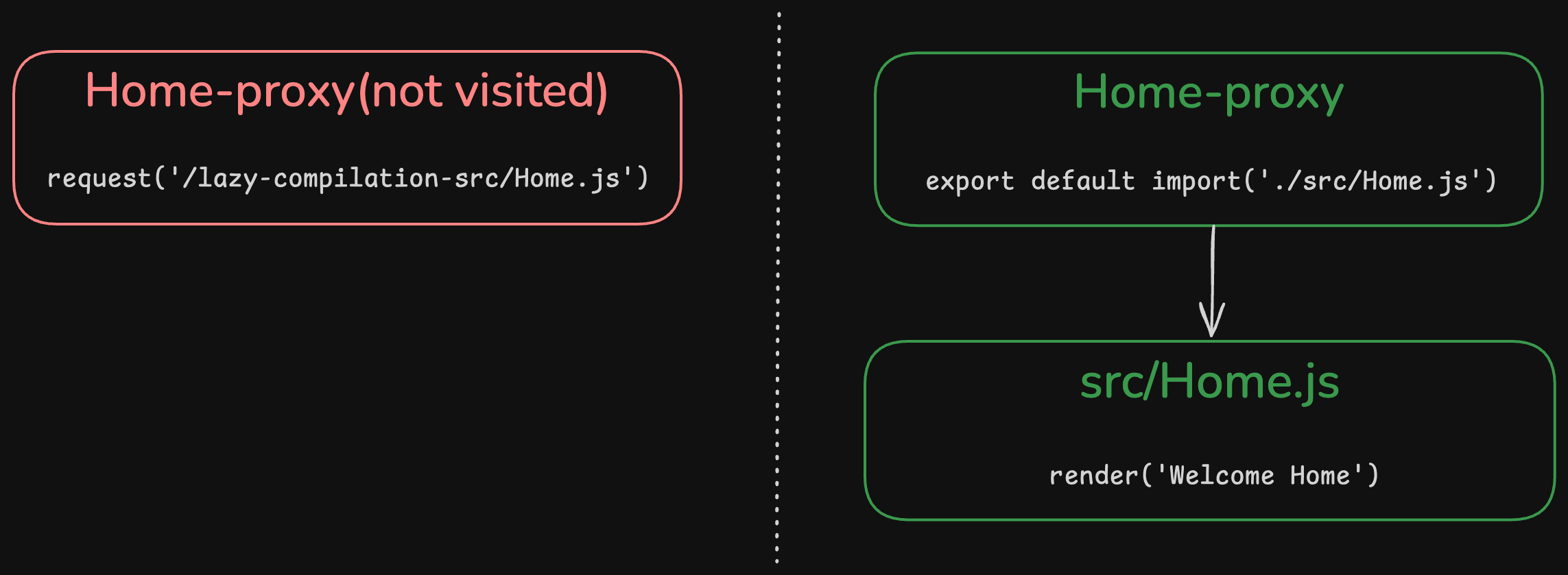Lazy compilation
Lazy compilation is an effective strategy to improve the startup performance of the development phase. Instead of compiling all modules at initialization, it compiles modules on demand as they're needed. This means that developers can quickly see the application running when starting the dev server, and build the required modules in batches.
By compiling on demand, unnecessary compilation time can be reduced. As the project scales up, compilation time does not significantly increase, which greatly enhances the development experience.
Lazy compilation is only effective for dev builds and does not affect production builds.
How to use
Rspack CLI
For users of @rspack/cli, you can enable lazy compilation through lazyCompilation configuration. Assuming you are developing a multi-page application (MPA), when developing one of these pages, Rspack will only build the entry point you are currently accessing.
lazyCompilation: true is equivalent to:
See lazyCompilation for more details.
When lazy compilation is enabled for entries, entry modules will actually be asynchronously dynamically imported. Therefore if you have configured splitChunks, entry modules will be treated as async chunk, which may result in slight differences between development and production artifacts.
Rsbuild
Use the dev.lazyCompilation option to enable lazy compilation with Rsbuild.
Filtering modules
In addition to two options entries and imports, you can also use a test option to filter out certain modules for lazy compilation.
For example, if you want to disable lazy compilation for the About entry point, you can refer to the following configuration:
Under the hood
The principle of lazy compilation is to proxy the unexecuted entries and dynamically imported modules. When the module is executed during runtime it sends a request to the dev server, triggering rebuild by Compiler along with module hot updates.
Only when corresponding entries and modules are executed will Rspack compile their respective entries and Modules along with all their dependencies.

Integrating with custom server
When using Rspack CLI, the lazyCompilation option is actually processed by @rspack/cli. It adds an Express-style middleware to dev server to handle lazy compilation requests from client.
If you are using a custom dev server, you will need to manually integrate rspack.lazyCompilationMiddleware into your dev server.
lazyCompilationMiddleware accepts one parameter:
compiler: The current Compiler instance, uselazyCompilationconfig from it.
Customizing lazy compilation endpoint
By default, the lazy compilation middleware uses the /lazy-compilation-using- prefix for handling requests. If you need to customize this prefix, you can use the prefix option:
This is particularly useful when you're integrating with an existing system that has specific routing requirements or when you need to avoid prefix conflicts.

